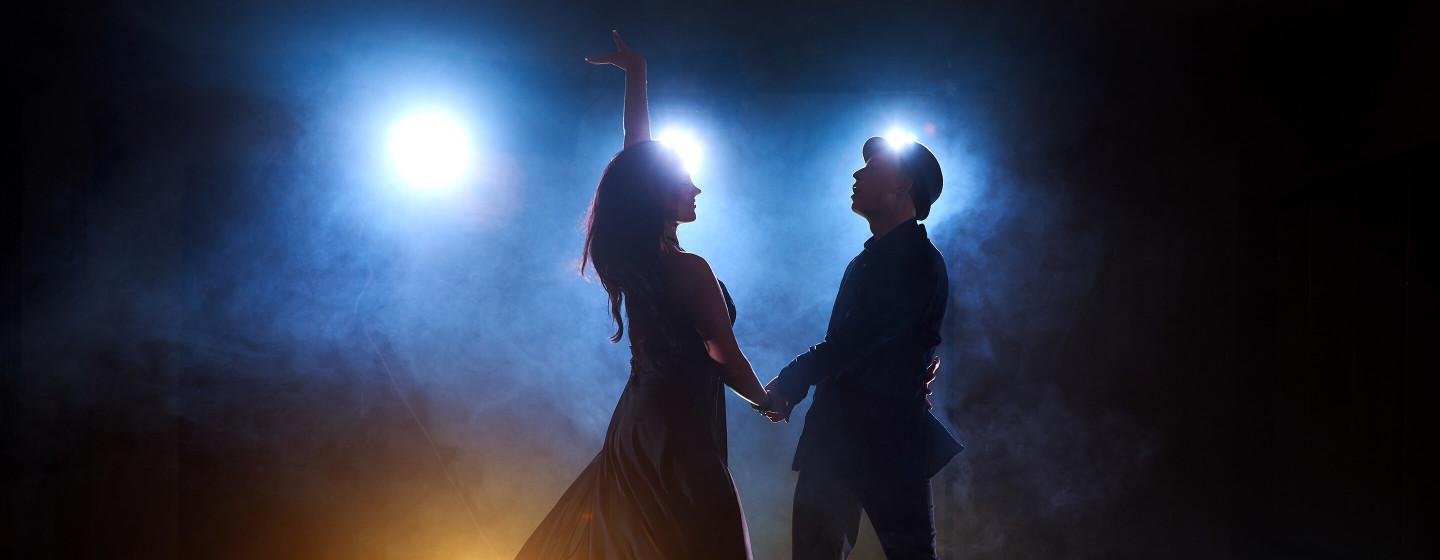
Drama and Theatre A Level
"Imagining what it is like to be someone other than yourself is at the core of our humanity. It is the essence of compassion, and it is the beginning of morality." - Ian McEwan
Drama and Theatre A Level provides an exciting opportunity for all those who are passionate about the theatre and about acting. It is a vibrant, high-energy subject that will challenge perceptions of theatre and performance. This course is designed to stretch acting ability but also to develop an in-depth theoretical understanding and appreciation of theatre.
Who should study drama and theatre?
- You must be committed to your subject and your group.
- You must want to devise, rehearse and perform - marks arise from the practical element of the components of the course
- You must be prepared to develop your understanding of the theoretical element of Drama and Theatre because it underpins all the practical work explored
- You must have a genuine passion and enthusiasm for theatre and performing
The course will also be of value in complimenting your studies across a range of subjects and in the development of transferable skills in future career growth. Our work across the course promotes the development of:
- Emotional intelligence
- Social and communication skills
- Confidence
- Teamwork
- Adaptability
- Leadership skills
What you will study
A level Drama covers a range of theatre practitioners and set texts, alongside live theatre criticism and the development of creative, evaluative, analytical and performance skills.
Current set texts and practitioners include:
- ‘That Face’ by Polly Teale
- ‘Hedda’ Gabler by Henrik Ibsen
- Naturalism and Constantin Stanislavski
- Epic Theatre and Bertolt Brecht
- Physical Theatre and Shared Experience
How the course is assessed
Component 1 (40% non-examined assessment) - Devising
You will devise and perform an original piece of theatre, using a key extract from a performance text and the work of a practitioner as a starting point. You will record the process in a 2,500-3,000 word portfolio.
Component 2 (20% non-examined assessment) - Text in Performance
In small groups, you will perform a polished extract from a performance text. Performance length 15-40 minutes, depending on group size. In addition, you will also perform either a monologue or a duologue from a different text.
Component 3 (40% 2 hours 30 mins written exam) - Theatre Makers in Practice
- Live theatre evaluation
- Set text 1 - Answering from the perspective of a performer and designer, you will demonstrate how a scripted extract would be realised in performance
- Set text 2 - You will demonstrate how you would reimagine a production for a contemporary audience, in the light of a theatre practitioner
Entry requirements
- Five subjects at grade 4 or above, including English and maths
- You do not need to have studied GCSE drama
Why study A Level Drama and Theatre at Windsor Sixth Form?
- Expert teachers - The course is delivered by two experienced Post-16 teachers who have a range of knowledge and expertise in varied drama and theatre genres.
- Small class sizes - Our small group sizes afford the students the opportunity to flourish under the focused attention of staff.
- Theatre visits - All students have the opportunity to attend our numerous theatre visits to develop analytical and evaluative skills as well as to inform them as practitioners.
- Extraordinary opportunities - Our extra-curricular and school production opportunities enable the students to participate and develop skills as performers but also as directors and leaders, with the option of taking on directorial and production roles.
Other courses that go well with Drama and Theatre A Level
A Level Drama and Theatre is useful if you are considering any arts, humanities or social science subjects, including English language and literature, dance, music, art and design, graphics, media studies, religious studies, sociology and psychology.
What you can do after the course
There are many different types of drama and theatre related courses at degree level or you might prefer to opt for the drama school route. Some courses specialise in particular aspects of drama and theatre performance, directing, stage design, lighting and so on. Others go for a broad overview of drama and the theatre. You will need to think carefully about which one suits you. Drama and Theatre can be taken in combination with other courses, such as English literature, history, media studies or a modern language.
Where do our students progress to after the course?
Career opportunities include arts/theatre administration, arts journalism, director, actor, designer, playwright, stage management, theatre management, theatrical agent, technician, broadcasting, media presenting, education, drama therapy and script writing.
Student success stories
Many of our students have gone on to study drama at university, including combined BA degrees in English and Drama - as well as a range of other combinations.
- One student, who had not studied drama at GCSE, attained an A* in A level Drama and Theatre (the highest mark awarded nationally on the written paper) and studied Psychology at the University of Birmingham
- One student achieved a grade C and studied Media, Film, TV and Drama at Aberystwyth University
- One student achieved a grade A, studied Psychology at Worcester University, returned to our drama department to complete a placement with us and is now an Educational Psychologist
- Another achieved a grade B, returned to complete a teaching placement with us whilst studying a combined Drama & English degree at Newman University and is currently a fully qualified English teacher

